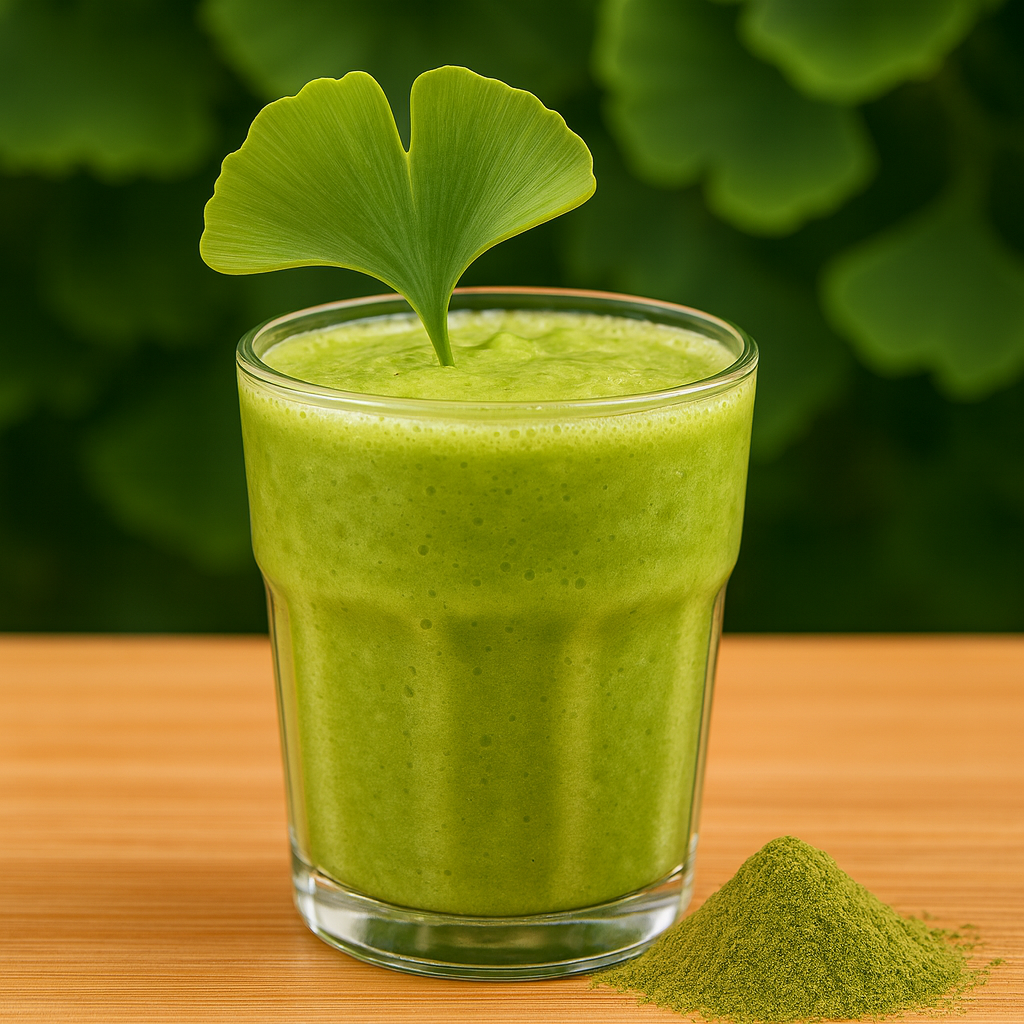An Ancient Tree with a Modern Following
Ginkgo Biloba is a tree that has been around for more than 200 million years. Often called a "living fossil,"it has deep roots in China's herbal traditions, where both the leaves and seeds have been used for centuries in teas, tinctures, and health remedies. In traditional Chinese medicine, Ginkgo has long been valued for its ability to promote balance and vitality, particularly in circulation and mental clarity.
Today, this ancient tree has made its way into modern health routines around the globe. Often sought for its cognitive and cardiovascular benefits, it appears in standardized extracts, capsules, juices, teas, and organic powdered supplements. But as its popularity grows, so does the question: is Ginkgo Biloba safe for the liver?
The Health Benefits of Ginkgo Biloba
Most people first hear about Ginkgo for its ability to support memory and mental focus. Studies suggest that its compounds help improve blood flow to the brain, which can benefit concentration and cognitive function. But the benefits go beyond the mind.
Ginkgo is also known to support cardiovascular health by improving circulation throughout the body. It contains powerful antioxidants that help neutralize free radicals, protecting cells from oxidative damage. This protective quality has implications for overall health, including the potential to shield delicate tissues from stress, like those in the liver.
From a nutritional standpoint, Ginkgo's leaves contain unique plant-based compounds, including flavonoids and terpenoids, which are believed to be responsible for much of its health-promoting activity. While it's not a supplement you'd take for vitamins and minerals in the traditional sense, it offers benefits that can complement an active, health-conscious lifestyle.
Ginkgo and the Liver: What the Research Shows
The liver is one of the body's hardest-working organs, responsible for filtering toxins, aiding digestion, and regulating metabolism. When introducing any new supplement into your routine, it's worth considering how it might affect this vital organ.
For most healthy individuals, studies have found that Ginkgo does not harm the liver. In some very isolated cases, there have been reports of elevated liver enzymes and liver injury linked to Ginkgo use. These cases often involve additional factors, such as high doses, long-term use without monitoring, or interactions with other medications or supplements.
On the other hand, Ginkgo's antioxidant properties offer a protective effect for liver cells by reducing oxidative stress ( a factor which can contribute to chronic inflammation and liver damage over time.) This dual picture: possible protection for some, but potential risks for others is why a balanced approach is so important.
Taking Ginkgo Safely with Liver Health in Mind
If you want to enjoy the benefits of Ginkgo without putting unnecessary strain on your liver, a few mindful practices can make a big difference. First, stick to the recommended dosage. For most adults, this is between 120 and 240 milligrams of standardized extract per day, divided into two or three doses.
Choosing an organic, standardized extract is essential to ensure purity and consistency. Supplements that meet quality standards are less likely to contain contaminants or unwanted compounds that could affect the liver. I recommend Unleash'd Organic's Ginkgo Biloba Powder because it's a non-gmo, one-ingredient superfood powder that does not contain any unwanted additives.
It's also wise to avoid combining Ginkgo with other supplements or medications that may stress the liver unless a healthcare provider has advised it. Those with existing liver conditions or who take multiple prescription drugs should always speak with a doctor before adding Ginkgo to their regimen.
The Traditional Chinese Medicine Perspective
In traditional Chinese medicine, Ginkgo is viewed as more than just a brain and heart herb. The leaves are used to promote circulation and vitality, while the seeds are used for respiratory and digestive health. However, keep in mind raw seeds can be toxic and must be processed carefully before use.
It is believed Ginkgo can help balance the body's energy, including supporting the liver's role in regulating the flow of qi, or life energy. It's often paired with other herbs in teas or decoctions to create a holistic effect. This long-standing tradition adds cultural depth to our modern understanding, reminding us that herbs are most effective when used with respect and awareness.
Signs That Ginkgo May Not Be Right for You
While most people easily tolerate Ginkgo, there are a few warning signs that it might not be the best choice for your body. Fatigue, abdominal discomfort, or yellowing of the skin and eyes can indicate stress on the liver. These symptoms should never be ignored, and anyone experiencing them should stop taking the supplement and seek medical advice immediately.
Long-term users, especially those over the age of 60 or those with complex medication routines, may benefit from periodic liver function tests to ensure everything remains in balance.
Conclusion: A Balanced Approach
For most healthy adults, Ginkgo Biloba is safe for the liver. In some cases, its antioxidant compounds may offer subtle protective effects. Still, rare risks exist, and the safest path is one that includes awareness, moderation, and regular check-ins with your healthcare provider.
By approaching Ginkgo with the same thoughtfulness you would apply to your nutrition, exercise, and other supplements, you can integrate it into a holistic wellness plan. If you choose to try it, Unleash'd Organic's Ginkgo Biloba Powder offers a clean, natural option that honors the plant's long history while supporting a vibrant, health-conscious lifestyle.


Leave a comment
This site is protected by hCaptcha and the hCaptcha Privacy Policy and Terms of Service apply.